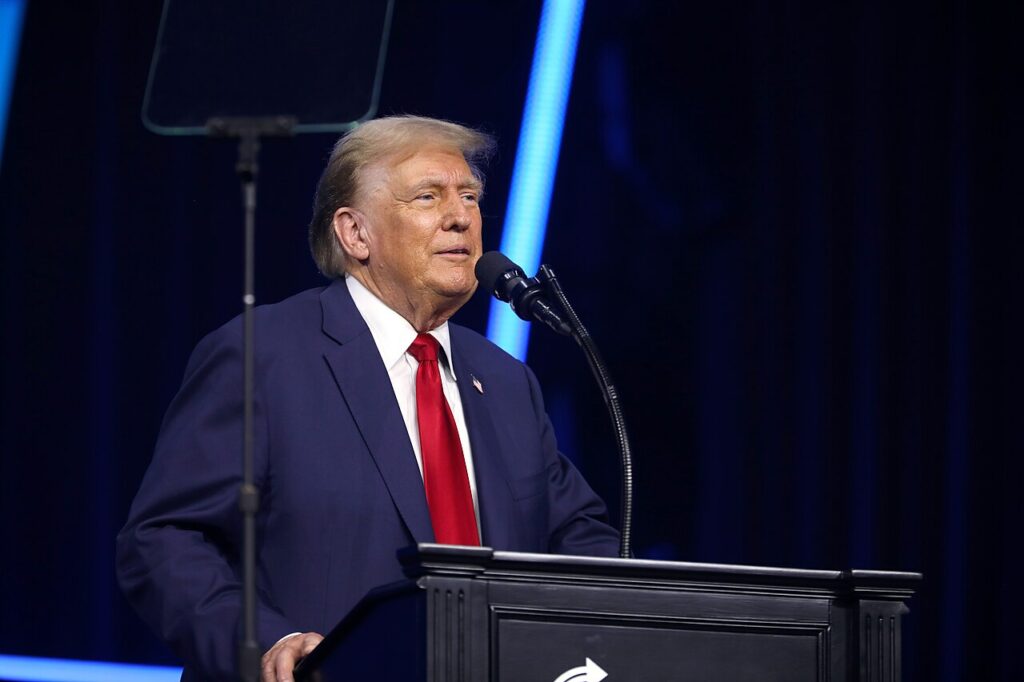Trump’s Renewed Threats to Prosecute Political Rivals Raise Alarm Among Legal Experts

Former President Donald Trump’s latest threats to prosecute his political opponents if he wins the 2024 election have raised serious concerns among legal scholars and democracy advocates. Trump’s statements, posted on Truth Social, accuse various groups of “cheating” in the 2020 election and warn that those individuals will face prosecution if he regains the presidency. These threats follow a pattern of similar rhetoric dating back to his first term, according to a recent report by USA Today.
On Saturday, Trump alleged widespread fraud in the 2020 election, despite numerous recounts and audits disproving those claims. He expanded these accusations to the 2024 election, threatening legal action against “Corrupt Election Officials” and others if he is re-elected. This rhetoric comes just weeks after Trump circulated posts calling for military tribunals against former President Barack Obama and for indicting the January 6 committee members.
A Threat to Democracy?
Richard Painter, a former White House ethics lawyer under President George W. Bush, compared Trump’s behavior to that of authoritarian regimes. Painter warned that targeting political rivals for prosecution, particularly based on debunked claims, undermines democratic values. “It’s extremely dangerous for democracy, this idea that the winner just puts the loser in prison,” Painter said.
Trump’s campaign defended his statements, with national press secretary Karoline Leavitt saying Trump simply believes in prosecuting those who break the law, including individuals involved in election fraud. However, legal experts argue that Trump’s threats blur the line between legitimate law enforcement and personal vendettas.
Trump’s History of Targeting Rivals
Stanford law professor Robert Gordon expressed concerns that Trump’s threats are not just political bluster. During his first term, Trump attempted to use the FBI and the Justice Department to investigate and prosecute his opponents. In 2017, Trump urged then-Attorney General Jeff Sessions to launch an investigation into Hillary Clinton. In 2018, he ordered White House counsel Don McGahn to direct the Justice Department to prosecute Clinton and former FBI Director James Comey. McGahn, however, advised Trump that such actions could lead to impeachment.
Why Trump Could Succeed in 2024
Amanda Carpenter, a former staffer to Republican Senators Jim DeMint and Ted Cruz, noted that the checks on Trump’s power may be weaker if he returns to office. Carpenter pointed out that some of Trump’s allies have been working to dismantle key legal safeguards, making it easier for Trump to carry out politically motivated prosecutions. These threats, Carpenter argued, are built on conspiracy theories and lies, which courts have already rejected, referencing Trump’s multiple failed lawsuits related to the 2020 election.
John Yoo, a University of California, Berkeley law professor, has taken a different stance. In an article for National Review, Yoo argued that prosecuting Trump sets a dangerous precedent that future presidents might avoid emergency actions for fear of prosecution. He supports retaliatory legal actions as a way to counterbalance what he views as excessive prosecutions of Trump.
The Risks of Political Prosecutions
Ilya Somin, a law professor at George Mason University, explained that arguments in favor of retaliatory prosecutions ignore the fundamental question of actual wrongdoing. “If the goose committed a serious crime, he deserves to be in prison, and if the gander didn’t, then she doesn’t,” Somin said. He also warned that politically motivated prosecutions could become a tool to target anyone, given the broad scope of federal law. Such a development, Somin argued, would resemble tactics used by authoritarian regimes.
Loyalty Over Competence?
During Trump’s first term, senior officials like Bill Barr and Mike Pence resisted some of his more extreme demands, including calls for prosecuting political enemies. However, aides suggest that in a second term, Trump would prioritize loyalty over expertise in choosing his administration. Republican vice-presidential nominee J.D. Vance has already signaled his support for Trump’s challenges to the 2020 election results, further highlighting the potential shift in the next administration’s focus.

